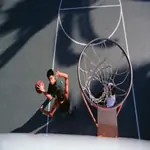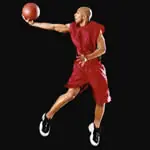In May of 2008, former University of Kentucky basketball coach Billy Gillispie offered a scholarship to a promising 6-foot-4 guard out of California named Michael Avery. It was the first offer Avery received, and he quickly accepted it to end his recruitment.
The catch? Avery was in eighth grade when he made the commitment.
Incredibly, Avery is not the only example of an athlete picking a college while still in junior high. Far from it. A year earlier, Ryan Boatright committed to play basketball at the University of Southern California when he was 14. Soon after, he picked a high school.
Later in 2008, 14-year old ice hockey player Jordan Schmaltz ended a recruiting process that had barely begun when he chose the University of Wisconsin.
Examples continue to pop up, mainly because college coaches continue to offer scholarships to middle school students. Heck, former Arizona coach Lute Olson reportedly offered Matt Carlino when the point guard was in seventh grade. Carlino waited--until after ninth grade--before committing to Indiana.
Predictably, the idea of junior high students choosing colleges has been met with criticism by experts. That includes Michael Husted, who played college football at Virginia.
"Allowing 14-year olds to make a college commitment is very premature," Husted said. "Many things can and will happen over the next few years to that athlete (that could change his mind)."
Tanesha Boatright, the mother of USC-bound Ryan, looks at it differently. In an interview with ESPN.com, she pointed out the benefits of her son committing to receive a free college education.
"Whether they offered him something at 14, 16, 18, what is wrong with it?" Boatright said. "What if it was a scholarship for good grades? Wouldn't that be exciting? My son makes good grades and he is good at sports. Hey, he's a good kid. He's been trained to work hard and study hard."
Boatright was first, but Avery's pledge a year later put the issue of young commitments at center stage, perhaps because of the prestige of Kentucky. After the Avery news broke, the National Association of Basketball Coaches released a statement asking coaches to "refrain from offering or encouraging these young people to make such commitments."
"The academic and athletic profiles of these younger students are still very much works in progress," then-NABC president and University of Minnesota coach Tubby Smith said.
The NABC suggested that offers should only be extended after a player's sophomore year of high school, when NCAA rules allow coaches to start initiating contact with recruits. The NCAA followed with legislation defining a prospect as seventh grade or higher in men's basketball, instead of ninth grade. This will prevent coaches from participating in elite camps for middle school players.
It won't stop the offers or commitments, though. In the case of Avery, he received an offer over the phone because his father contacted Gillispie after hearing rumblings of the coach's interest, which is within the rules. Boatright received his USC offer during a face-to-face meeting with former coach Tim Floyd at a USC elite camp--also within the rules since the meeting was on campus.
The NABC's statement expects to fall on mostly deaf ears. Recruiting can be so competitive that coaches are forced to walk the thin line between right and wrong, if only because every other coach does.
A similar issue occurred regarding the brief hysteria of text messaging recruits. Though officials spoke out against texting high school students during the school day, coaches didn't stop until the NCAA finally banned the form of communication altogether in 2007.
It's been proven: many coaches will follow hard rules and little else.
Which makes the young-commitment issue even harder to handle. Technically, oral commitments like the ones Avery and Boatright gave are non-binding, and worth only the word each teenager stands behind. Both recruits are free to listen to other colleges or even commit to play basketball elsewhere if they choose to. They will sign a binding letter of intent in the fall of their senior year.
The issue, then, may shift--from the college coaches pressured to win to the young recruits with plenty of time to make their choice.
"Both the parents and athlete should be patient," Husted said. "If he or she is getting an offer that early, chances are there will be many more to come. He may go from wanting to be an astronaut to wanting to be a doctor in those two or three years and thus feel another school may best suit him academically."







Discuss This Article